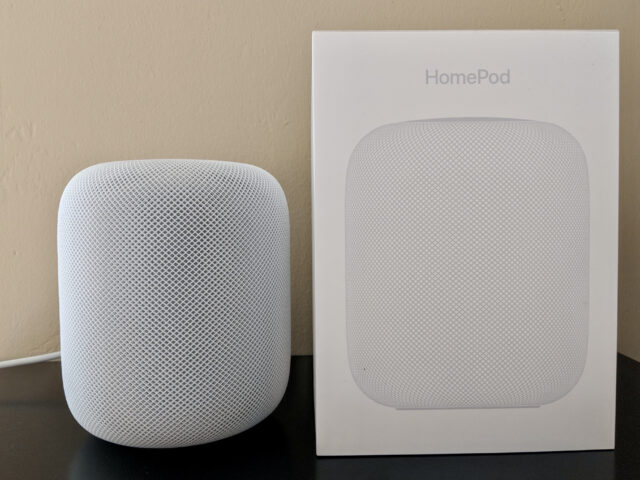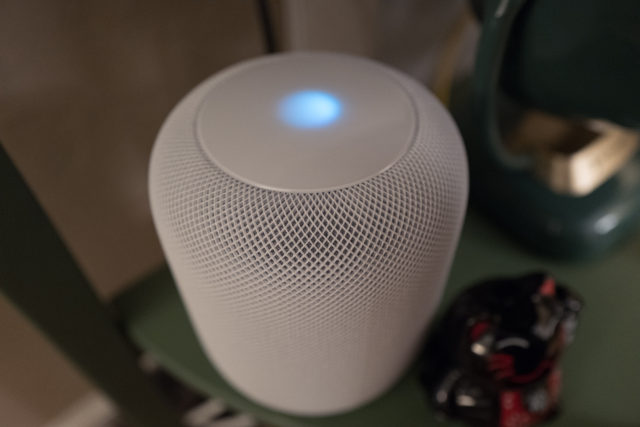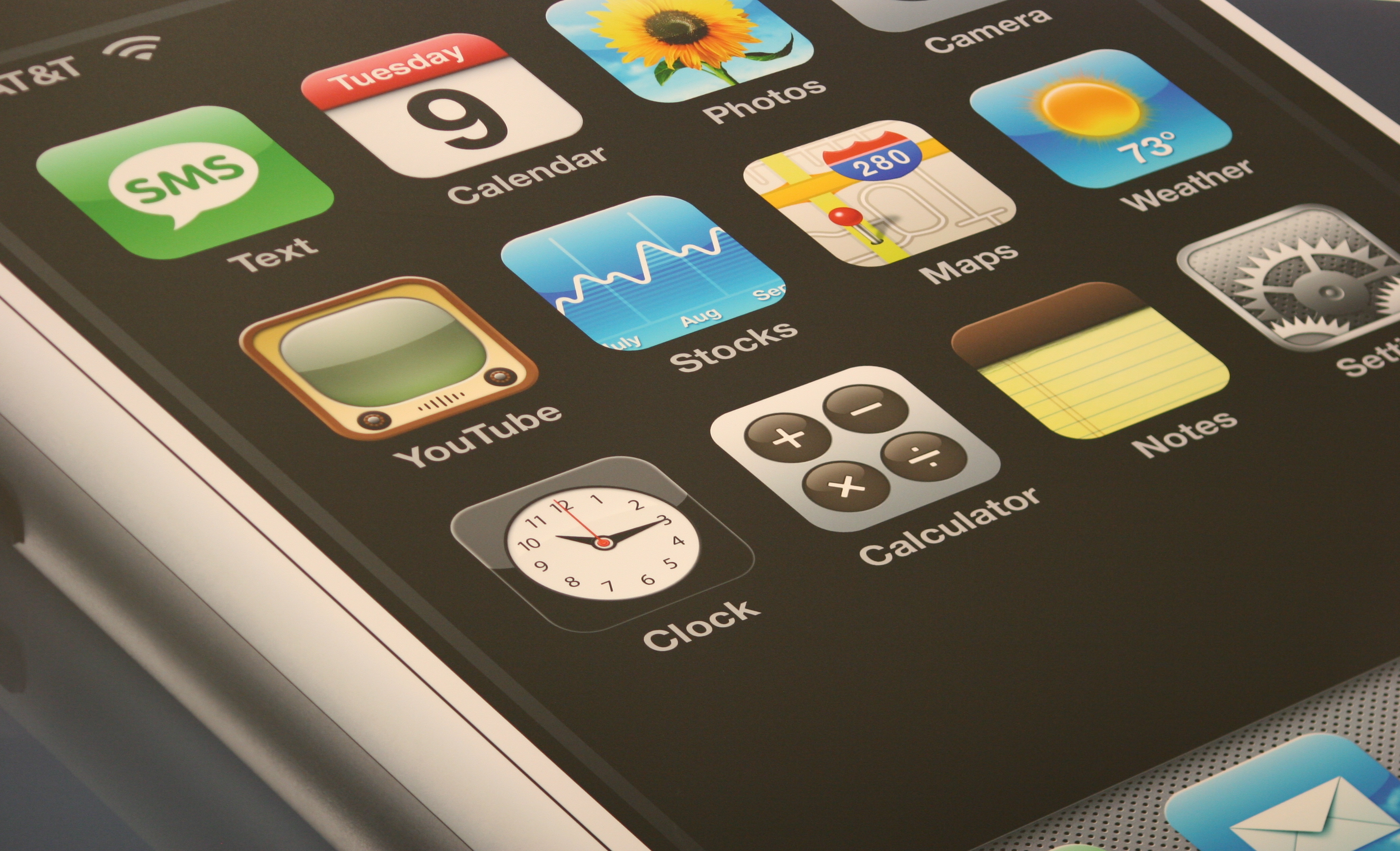Four days ago, Apple unceremoniously terminated the full-size HomePod. The life-support plug is pulled, the product is flat-lined, and the lower-cost mini model is the replacement. We bought our first HomePod, white, in February 2018. The Featured Image is from Google Pixel 2 XL, captured on June 23 of that year. Vitals: f/1.8, ISO 246, 1/40 sec, 26mm (film equivalent); 3:37 p.m. PDT.
During an argument, my daughter’s then-boyfriend plopped her HomePod into a pot of water soaking in the kitchen sink. I know, I know. She inherited ours, and this one is the AppleCare-warranty replacement. However, the other one mysteriously stopped working, and I gave her the parent’s unit (isn’t there some Woke prohibition against using Mom and Dad). We later bought two more HomePods, in grey, and regret the day. We don’t subscribe to Apple Music, and Siri seriously needs to spend more time in Artificial Intelligence school—although she’s not as remedial three years later.




